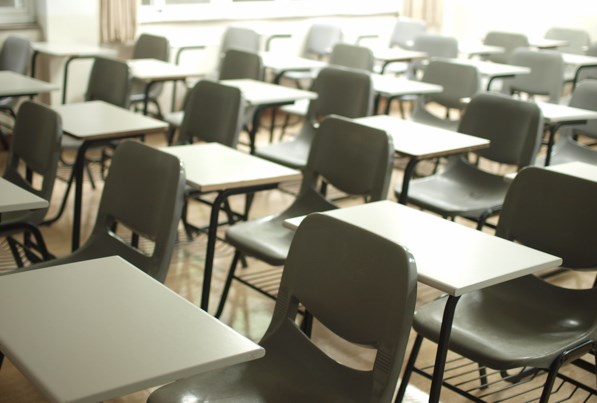Moving country can be challenging; you want the best for your family, and that includes your children’s education. In this article, we’re going to talk about what education you can expect for your kids when moving from Costa Rice to the UK.
Costa Rica and the UK are two entirely different locations, with different cultures, alternative weather, and different schooling systems. One thing is certain, you won’t be disappointed with your children’s education in the UK.
The UK is known to be one of the top countries in the world for education. Currently, it ranks on the World Population Review as 2nd place after the United States of America. This is 60 places ahead of Costa Rica, who ranks at 62nd.
It goes without saying that you may face plenty of challenges with the differences in education, but an education law specialist can provide advice should you need assistance with any problems that you or your children might be facing with the different schooling. So, with this information, what education can you expect for your kids when moving from Costa Rica to the UK. Let’s find out more…
School Hours Will be Different
One noticeable difference between the two is that Costa Rica and the UK have very different schooling hours. Costa Rica runs on two different cycles that students alternate between during the school week:
- Classes that run from early morning until early afternoon – most often 07:00 till 13:00.
- Classes that run from early afternoon until late afternoon – most often 13:00 to 17:00.
In the UK, there is only one cycle for schools, and it usually starts at 08:30-09:00 until 15:00-16:00, providing a steady weekly routine for children.
A comparable difference between the two is the hours spent at school each day. Costa Rica school hours are only four hours long, whereas the school days in the UK are much longer. Children spend a total of six and a half hours each day in school.
Requirements for Registering with the Costa Rican Authorities Your Covid-19 Vaccine Certificate
The School Year is Different
In Costa Rica, the school year runs from February to November/December, which is very different to the UK’s school year, which runs from September until July.
School Ages and Years Differ
The school years are similar in Costa Rica as to what they are in the UK, but they are still slightly different…
Costa Rica School Ages
Primary School
- 1st grade = 6 to 7 years old
- 2nd grade = 7 to 8 years old
- 3rd grade = 8 to 9 years old
- 4th grade = 9 to 10 years old
- 5th grade = 10 to 11 years old
- 6th grade = 11 to 12 years old
Secondary School
- 7th year = 12 to 13 years old
- 8th year = 13 to 14 years old
- 9th year = 14 to 15 years old
- 10th year = 15 to 16 years old
- 11th year = 16 to 17 years old
- 12th year = 17 to 18 years old
UK School Ages
Primary School
- Reception = 4 to 5 years old
- Year 1 = 5 to 6 years old
- Year 2 = 6 to 7 years old
- Year 3 = 7 to 8 years old
- Year 4 = 8 to 9 years old
- Year 5 = 9 to 10 years old
- Year 6 = 10 to 11 years old
Secondary School
Year 7 = 11 to 12 years old
Year 8 = 12 to 13 years old
Year 9 = 13 to 14 years old
Year 10 = 14 to 15 years old
Year 11 = 15 to 16 years old
Sixth Form/College
Year 12 = 16 to 17 years old
Year 13 = 17 to 18 years old
Law to Attract Film Investments to Costa Rica Came Into Effect
Classrooms Sizes Are Larger
In the UK, public schools generally have more students per classroom than private schools. For public schools, the average size class is 22 students, which is less than classrooms sizes in Costa Rica which, on average, have 35 students per class.

School Grading Systems Vary
In Costa Rica, the grades that are used are S (outstanding), N (notable), Suf (Sufficient) and I (insufficient), calculated by either a 100- or 10-point grading scale.
The UK has many different grading scales depending on the level of education they are undertaking. For example, the levels of UK education, GCSE, further education, and higher education are all graded differently from one another.
GCSE
In England specifically, grades are indicated by numbers, going from 9 (highest) to 1 (lowest). However, in Wales and Northern Ireland, they are calculated on a scale from A* (highest) to G (lowest).
Further Education
When students sit their AS and A level exams, they are graded on a scale from A* (highest) to E, those below the minimum will receive a U grade, meaning it is unclassified. Specifically, the grades are:
- A* (90-100%)
- A (80-89%)
- B (70-79%)
- C (60-69%)
- D (50-59%)
- E (40-49%)
- U (Unclassified)
Higher Education
Grading at university is again graded in a particular way that is different from the other levels of educations. Below is the grading scale for an honour’s degree, from first-class honours to fail:
- First-class honours/First/1st (70%+)
- Upper second-class honours/2:1 (60-69%)
- Lower second-class honours/2:2 (50-59%)
- Third-class honours/Third/3rd (40-49%)
- Fail (0-39%)
There is also a different grading scale for an ordinary degree, which goes to post-grad students, and which is from distinction to fail:
- Distinction (70%+)
- Merit (60-69%)
- Pass (50-59%)
- Pass (40-49%)
- Fail (0-39%)

Education is Compulsory in the UK
In the UK, parents do not have the choice of sending their children to school; it is compulsory that they receive a full-time education from the age of five until they turn 16. Following 16 until 18, there are three choices for children, these are:
- Stay in full-time education, such as college or sixth form.
- Start an apprenticeship or traineeship.
- Spend 20 or more hours a week working, either paid or voluntary, whilst doing part-time education or training.
This is different to Costa Rica, where preschool and primary school are the only mandatory years that children must spend in education. Anything further is completely voluntary, but usually needed for most job roles.
The UK Education System Can Help Your Children to Thrive
We can conclude that there are some big differences between the school systems in Costa Rica and the UK. It may possibly come as a shock to begin with for your children, but the UK is renowned for its great education system, with many students going onto the top universities and achieving their career dreams.
What are your thoughts on the UK schooling system? Share them below in the comments section.

